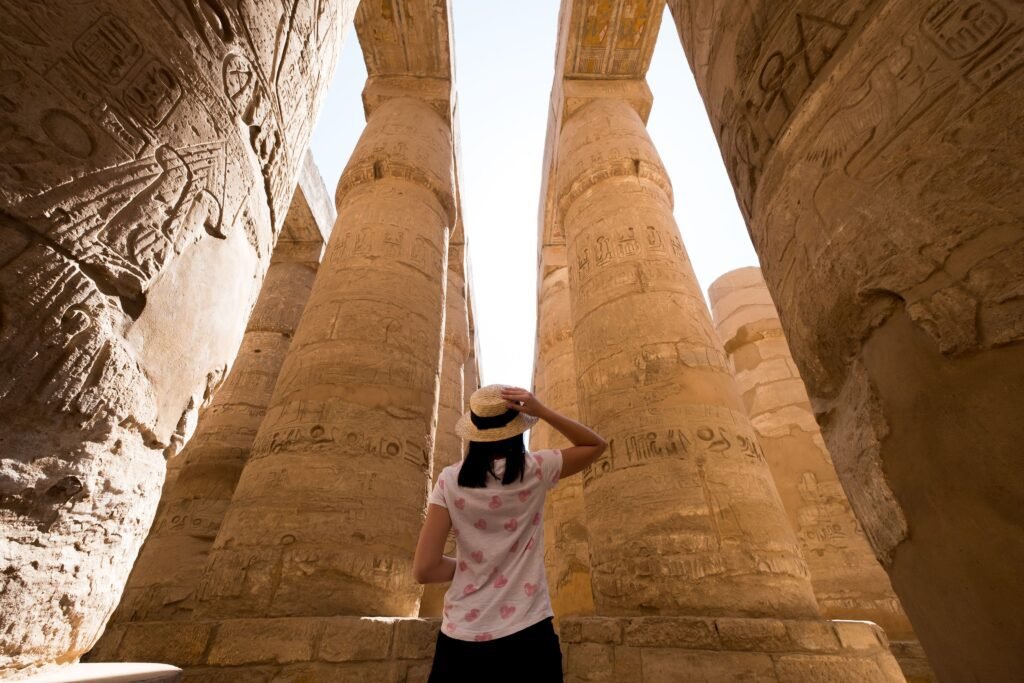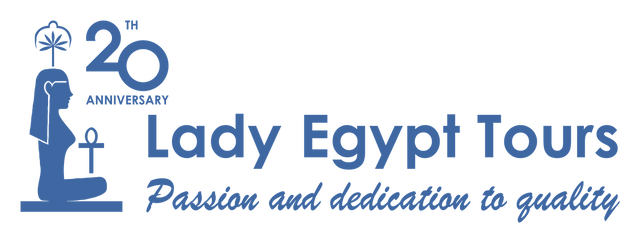Nothing can truly prepare you for a trip to Egypt – you really have to experience it for yourself. However, these 10 tips for first-time visitors to Egypt will put you at ease before your visit.
Travelling with one of our Egypt tours also means that you will have assistance and advice throughout your journey – allowing you to relax and savour your time there.
Visit during the shoulder season
The best time of the year to visit Egypt is from October to April as the temperatures are more pleasant. Spring is the shoulder season in Egypt and
there are fewer crowds. Along the coast in spots like Hurghada, the sea is warm and the towns are not as busy. Egypt’s high season and winter period are from October to February. The weather is warm and there is occasional rain.
The low season in Egypt is from June to August and the scorching sun makes sightseeing in the middle of the day uncomfortable. It is also advisable to stay away from the Western Desert. If you are travelling with our Egypt tour in this sizzling spell, our tour guide will alter your itinerary and make sure that you still experience the best of Egypt.
Respect the dress code and culture
When visiting Egypt with one of our Egypt tours, you should dress modestly. The country is conservative, particularly when it comes to clothing. As a female traveller, you need to have your knees and shoulders covered. When entering a mosque or any religious sight, covering up your hair and removing your shoes is customary. If you are visiting a mosque and do not have anything to cover your shoulders, legs or head, the staff will usually give you a robe. Swimwear is only acceptable at coastal resorts along the Red Sea.
Male travellers can wear shorts during the day when exploring the city, but in the evening pants or jeans will usually be necessary. Gym attire, tank tops and sleeveless shirts are not suitable and for the cooler evenings, bring warmer clothing. Swimwear and swimming trunks are only tolerated at Red Sea resorts and towns on the coast.

Don’t drink the tap water
The tap water in Egypt is not dangerous to drink, but it is highly chlorinated, which gives it an awful taste and can upset your stomach. To stay hydrated throughout your Egypt tour, especially when walking around in the heat, you should drink bottled water. It is safe to drink tap water after it has been boiled and bottled water is cheap and readily available. To reduce the waste of plastic bottles, consider using iodine or Steripen.
As the temperature in Egypt can get extremely hot, it is important to drink water during the day to avoid health risks like heat stroke and heat exhaustion. Your tour guide will be there to help if you feel any symptoms and will ensure that the tour group has access to bottled water.
Prepare to haggle
Bargaining is part of the shopping experience in Egypt and we suggest giving it a try. If you need any help mastering the skill on your Egypt tour, a local guide will be on hand. Just remember that haggling is the norm in Egypt and the vendors in the markets expect you to ask for a better price.
The first price that a vendor offers is normally ten times the worth of the item. We suggest beginning at one-tenth of the cost offered. You should then propose your maximum price and stick to it. If the vendor doesn’t initially agree and you walk away they will usually follow you and settle on your price.
Keep small change
As you travel around on your Egypt tour it is a good idea to keep small change with you. Carrying LE5 and LE10 notes will prove useful for baksheesh (tipping) and buying items like bottled water. Many vendors in shops will not accept large bills. The official currency of Egypt is the Egyptian pound (LE) and we recommend that you don’t change your money before coming to Egypt. Dollars, Euros and sterling are accepted (notes not coins) but your money will go further if you change it into Egyptian pounds.
In Egypt, you are expected to tip anyone who has offered you a service, like in hotels or restaurants. You are not obligated to tip anyone that does not provide you with a service. We do encourage tipping in Egypt as many of the Egyptian workers have low salaries and rely on tips.

Learn a few Arabic words
What better way to understand more about the people of a country than to learn their language? With our Egypt tours, we strive to show you the life of the locals and their culture, not just the touristy sights. Throughout our tour, we will give you plenty of chances to engage and mingle with the locals. By picking up simple phrases like ‘is salam Alaykum meaning ‘hello’ and ‘shukran’ meaning ‘thank you’; Egyptians will warm to you quickly.
You will also find that in many of the bigger cities and tourist areas, English is widely spoken. On our Egypt tours, we will also venture to Aswan and Luxor where a Nubian language is used by some of the people. Your expert tour guide will also be available to do any translating or to help you get to grips with the terms and pronunciations.
Don’t eat in public during Ramadan
Islam is the dominant religion in Egypt and makes up 90% of the population. In the Muslim religion, the ninth month of the lunar year is called Ramadan. Throughout the course of this period, practising Muslims fast during the daylight hours, abstaining from all food and drink until sunset. Fasting is done to remember the poor and to honour the revelation of the first verses of the Qur’an to the Prophet Muhammad.
If you are travelling to Egypt in Ramadan with an Egypt tour, you cannot eat or drink in public during the day. Even though many of the restaurants and tourist sights close for certain hours, we actually recommend visiting Egypt during this time. There will be fewer crowds, you will have easier access to view landmarks and you will get to experience this special festival. Your tour guide will also alter your itinerary and take into consideration the practices to make sure that you don’t miss out on anything.
Eat where the locals eat
Street food is a large part of the Egyptian food scene and our Egypt tours will give you plenty of chances to sample the local delicacies. Popular dishes include hearty stews and stuffed vegetables. The national dish of Egypt, kushari, can be found at many stalls and is a filling combination of noodles, rice, lentils, fried onion and tomato sauce.
Dining takes place late at night and some restaurants only open for dinner at 10 pm or later in the summer. Be warned, the serving portions are big, so pace yourself, share and avoid ordering too much.


















